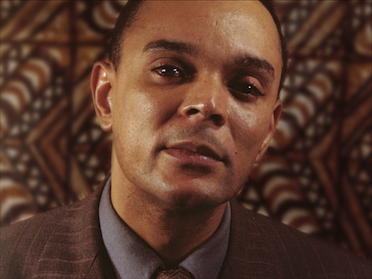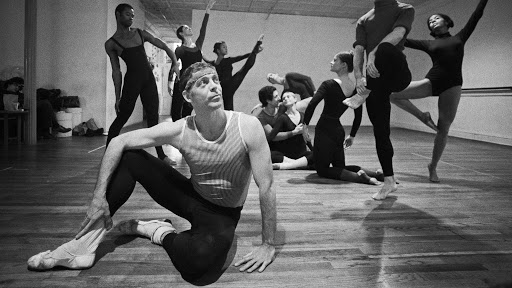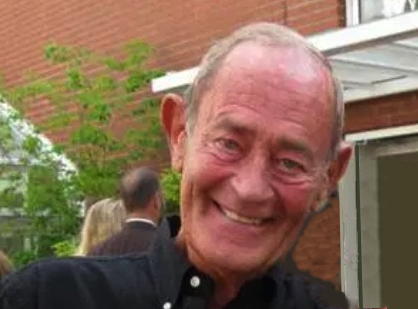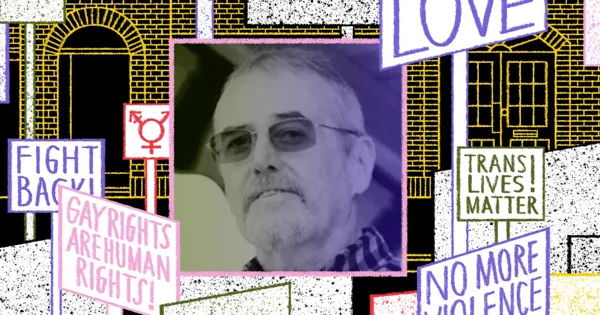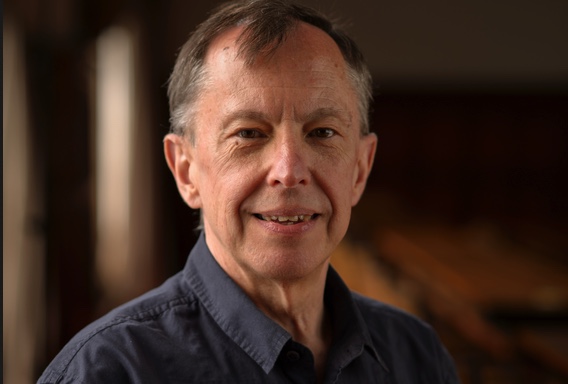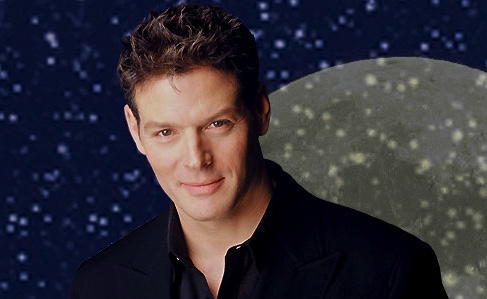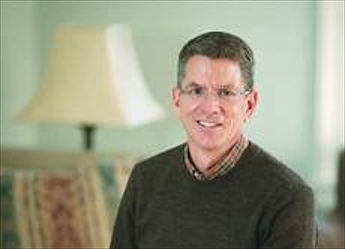|
presents THIS DAY IN GAY HISTORY based on: The White Crane Institute's 'Gay Wisdom', Gay Birthdays, Gay For Today, Famous GLBT, glbt-Gay Encylopedia, Today in Gay History, Wikipedia, and more …
Collected by Ted July 29 [{(o)}]|[{(o)}]|[{(o)}]|[{(o)}]| [{(o)}]|[{(o)}] 1519 – Spain: Four men are burned at the stake for sodomy because a Franciscan friar, Luis Castelloli, preached that God’s wrath for sodomy was the plague.
1905 – One of the most enigmatic men of the twentieth century, Dag Hammarskjöld (d.1961) managed to live an intensely private and secluded life in full view of the public. Hammarskjöld navigated the difficult seas of national and international politics and became the Secretary General of the United Nations. His sexual life, however, remains clouded by rumor with scant evidence to confirm any argument. Dag Hammarskjöld was born in Sweden on July 29, 1905 into a family prominent in Swedish government. His father, Hjalmar, served as provincial governor and later Prime Minister during World War I, maintaining Swedish neutrality. Dag was the fourth son born to his mother Agnes, who was in her forties at the time of his birth. Agnes wanted a girl and compensated by dressing Dag in lacey skirts and other feminine attire well into his boyhood. The family lived in Uppsala, one of Europe's oldest university towns. Hammarskjöld received his first degree in humanities, specializing in the poetry of Emily Dickinson and Herman Hesse. Subsequently, he took a second degree at Uppsala in economics in 1928, a law degree in 1930, and a doctoral degree in economics in 1934. Hammarskjöld taught economics at the University of Stockholm in 1933. Beginning in 1930, Hammarskjöld also filled various posts in Swedish government. He became a secretary of a governmental committee concerning unemployment (1930-1934). He served both as Permanent Under-Secretary of the Ministry of Finance and Chairman of the National Bank's Board. From 1946 forward, Hammarskjöld's involvement with international politics grew, as he served in the Swedish Foreign Ministry . He represented Sweden in discussions that resulted in the formation of the Marshall Plan, which rebuilt western Europe following World War II, while he avoided entangling Sweden in the politically polarized NATO agreements. He served as Swedish delegate to the United Nations in 1949 and again from 1951 to 1953. In 1953 he was elected for a five year term as U. N. Secretary General, and re-elected in 1957. Immediately upon his election as Secretary General, the rumors of his homosexuality began to circulate. Throughout his life, Hammarskjöld remained without female attachments. He dismissed his lack of family life by explaining that his mother had suffered terrible loneliness as a result of his father's devotion to government service and he did not wish to inflict such a life on anyone else. Considering how rare a high-ranking single man was in any government at the time, such excuses seem rather flimsy. Hammarskjöld held deep religious beliefs and held himself, and others, to impossibly high standards. His introspective book of personal reflections, Markings, reveals a man who frequently regarded himself and others with loathing and contempt. He never spared himself from the same exacting requirements of perfection that he sought in others. Speculation that he could see his sexuality only as a personal weakness, and therefore something to be sublimated and overcome, continues to be the primary interpretation of his apparently asexual existence. In Markings, he leaves only vague hints that may be keys to his sexual feelings. He implies that he feels ostracized for being different, perhaps superior. In another passage, he describes someone who is more true to himself; Hammarskjöld simultaneously admires and abhors the person. While such thoughts may point to Hammarskjöld's tormented sexual conflicts, they could equally well refer to something else entirely. Unless some hidden manuscript surfaces or an aging lover suddenly feels moved to revelation, it seems unlikely the world will ever know for sure the details of Hammarskjöld's sexual experience. W. H. Auden, who translated Markings, was convinced of his homosexuality; it is thought that saying so publicly during a lecture tour of Scandinavia may have cost Auden the Nobel Prize for Literature that he was widely expected to receive in the 1960s. Hammarskjöld's tenure as Secretary General saw global conflicts both hot and cold. The Eastern and Western Powers having settled into the long period of virtual stalemate, his tenure as Secretary General saw the Suez Canal Crisis, the on-going Middle East Crisis, and the incipient awakenings of African colonies as they moved to assert their voices for independence. Hammarskjöld provided a voice of reason and calm in a world all too often filled with demagoguery and histrionics. During a U. N. mission in the Congo, Hammarskjöld died in a plane crash, sometime during the night of September 17 and 18, 1961. Later that year, Hammarskjöld was posthumously awarded the Nobel Peace Prize.
1909 – Chester Himes (d.1984) was an American writer. His works include If He Hollers Let Him Go and a series of Harlem Detective novels. In 1958 he won France's Grand Prix de Littérature Policière. Chester Himes was born in Jefferson City, Missouri. He grew up in a middle-class home in Missouri. When Himes was about 12 years old, his father took a teaching job in the Arkansas Delta at Branch Normal College (now University of Arkansas at Pine Bluff), and soon a tragedy took place that would profoundly shape Himes's view of race relations. He had misbehaved and his mother made him sit out a gunpowder demonstration that he and his brother, Joseph Jr., were supposed to conduct during a school assembly. Working alone, Joseph mixed the chemicals; they exploded in his face. Rushed to the nearest hospital, the blinded boy was refused treatment because of Jim Crow laws. "That one moment in my life hurt me as much as all the others put together," Himes wrote in The Quality of Hurt. Himes family left Pine Bluff and relocated to Cleveland Ohio where he attended East High School. While he was a freshman at Ohio State University in Columbus, Ohio, he was expelled for playing a prank. Returning to Cleveland, he met his future wife, Jean Lucinda Johnson, and fell into petty crime. Within two months of 1928 Himes was convicted of three crimes, including armed robbery, and sent to the Ohio State penitentiary for twenty to twenty-five years. He was nineteen. In prison, he wrote short stories and had them published in national magazines. Himes stated that writing in prison and being published was a way to earn respect from guards and fellow inmates, as well as to avoid violence. In prison, he said, he learned how the world really worked – absurdly. He took a homosexual lover named Prince Rico and barely escaped the infamous Easter, 1930, prison riot and fire that killed 330 inmates. The latter he turned into his first magazine article, "To What Red Hell," which appeared in 1934 in Esquire, where he was identified by name and prison I.D. number. In prison he read many pulp magazines, including Black Mask. He was particularly impressed by Carroll John Daly's Race Williams, whose exploits he mentioned in letters to the outside. Released from prison after six years, Himes moved back to Cleveland. He wrote more hard-boiled stories for Esquire, married Jean Johnson in 1937, and met Langston Hughes, who gave him aid and artistic contacts. In the 1940s Himes spent time in Los Angeles, working as a screenwriter but also producing two novels, If He Hollers Let Him Go and The Lonely Crusade that charted the experiences of the wave of black in-migrants, drawn by the city's defense industries, and their dealings with the established black community, fellow workers, unions and management. He also provided an analysis of the Zoot Suit Riots for The Crisis, the magazine of the NAACP. By the 1950s Himes had decided to settle in France permanently, a country he liked in part due to his popularity in literary circles. In Paris, Himes' was the contemporary of the political cartoonist Oliver Harrington and fellow expatriate writers Richard Wright, James Baldwin, and William Gardner Smith. Chester Himes wrote about African Americans in general, especially in two books that are concerned with labor relations and African-American workplace issues. If He Hollers Let Him Go – which contains many autobiographical elements – is about a black shipyard worker in Los Angeles during World War II struggling against racism, as well as his own violent reactions to racism. Lonely Crusade is a longer work that examines some of the same issues. Cast the First Stone (1952) is based on Himes's experiences in prison. It was Himes's first novel but was not published until about ten years after it was written. One reason may have been Himes' unusually candid treatment – for that time – of a homosexual relationship. Originally written in the third person, it was rewritten in the first person in a more "hard-boiled" style. Yesterday Will Make You Cry (1993), published after Himes's death, restored the original manuscript. Himes also wrote a series of Harlem Detective novels featuring Coffin Ed Johnson and Gravedigger Jones, New York City police detectives in Harlem. The novels feature a mordant emotional timbre and a fatalistic approach to street situations. Funeral homes are often part of the story, and funeral director H. Exodus Clay is a recurring character in these books. The titles of the series include A Rage in Harlem, The Real Cool Killers, The Crazy Kill, All Shot Up, The Big Gold Dream, The Heat's On, Cotton Comes to Harlem, and Blind Man with a Pistol; all written between 1957–1969. It was in Paris in the late 1950s that Chester met his second wife Lesley Himes, née Packard, when she went to interview him. Lesley and Chester faced adversities as a mixed race couple but they prevailed. Bohemian life in Paris would in turn lead them to the South of France and finally on to Spain, where they lived until Chester's death in 1984.
1930 – One of the most influential dancers and choreographers of the twentieth century, Paul Taylor (d.2018) was an important presence in American dance since the 1950s. When he wrote his autobiography, at the age of 57, Taylor revealed his ambivalence about sex and gender in dance and life, remarking that to "pick partners of consistent gender would've run against an arbitrary streak" that he considers one of his strengths. He was born Paul Belleville Taylor, Jr. on July 29, 1930 in Allegheny County, Pennsylvania. After his parents divorced he was shuttled between various friends and relatives as his mother worked full-time in a restaurant. Taylor attended Syracuse University on an athletic scholarship as a swimmer and majored in sculpture and painting. He left school during his junior year to study with Martha Graham, Antony Tudor, and José Limón, among others. He then danced with the Merce Cunningham Dance Company (1953-1954), Pearl Lang (1955), and then the Martha Graham Dance Company (1955-1962). Taylor established his own company in 1964. After appearing at the Festival of Two Worlds in Spoleto, the company began to tour all over the world. Several of his company's tours have been sponsored by the United States State Department. 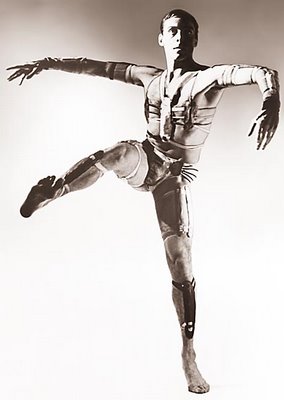 At 6'3" Taylor was a large man for a dancer, but he danced with a startlingly fluid movement. His lyrical approach gave barefoot modern dance a neo-classic style with a virtuosic edge. When Taylor retired from dancing in 1974 at the age of 44, many felt that this very good dancer was on his way to becoming a great choreographer. Many of his dances have been performed by major ballet and modern companies around the world, especially Aureole (1962), Esplanade (1975), Airs (1978), and Arden Court (1981). No other modern dance choreographer is so popular with ballet companies and their audiences: over fifty ballet troupes have performed his pieces. Taylor's fertile imagination has created over 100 dances. Dancer and budding choreographer Christopher Gillis (1951-1993) had been designated Taylor's heir apparent. However, he died of AIDS complications and the company's future leadership is now uncertain. In his chatty autobiography Private Domain (1987), Taylor mentioned sexual encounters with both men and women, yet concludes that "As far as romance goes, I can forget it." He seemed to find his responsibility for his "family" of dancers a satisfying substitute. Same-sex partnering appears in works such as Esplanade (1975), Kith and Kin (1987), Company B (1991), and Piazzolla Caldera (1997). Still, these works may not indicate much about Taylor's private life. As he warned many interviewers during his career, "I'm not trying to do autobiographical dances, that's not my thing." Among Taylor's honors are a Guggenheim Fellowship (1961), an Emmy Award (Speaking in Tongues, 1991), a Kennedy Center Award (1992), and a National Medal of Arts (1993). Taylor died of renal failure on August 29, 2018, at a Manhattan hospital at the age of 88.
1943 – American philanthropist Dennis Dougherty was a technology entrepreneur and leader in Colorado’s LGBT community. Dougherty was born in Omaha and drafted by the U.S. Army to fight in Vietnam. He came out as gay at an early age and later testified before Congress on the military’s “Don’t ask, don’t tell” policy. He was founder and CEO of Visual Electronics, a Denver-based information technology support company that provided him with a source of wealth he readily shared. He was generous with both his time and money and not the type to take no for an answer. Although he supported a variety of causes, Dougherty was best known for his work on LGBT issues. One of Dougherty’s missions in life was to make sure young people had an easier time than his generation did on issues of sexual orientation. Dougherty attended the funeral of Matthew Shepard, the gay college student who was tortured and murdered near Laramie in 1998. He quickly befriended the parents and raised funds and served on the board of the foundation they started. He died of cancer in 2014
1947 – Dennis Cleveland Stewart (d.1994) was an American actor and dancer. Dennis is well known for playing Leo Balmudo (Craterface), the Scorpions' gang leader in Grease (1978) and reprised the role as the Cycle Lords' leader in Grease 2 (1982). He also appeared as a dancer in Sgt Pepper's Lonely Hearts Club Band. Openly gay, Stewart contracted HIV in 1993 and died from complications from AIDS in 1994. He was cremated and had his ashes scattered at sea.
1948 – (Frédéric André) Fred Sargeant is a French-American gay rights activist and former lieutenant with the Stamford CT Police Department. He participated in each of the nights of the 1969 Stonewall riots and was one of the four co-founders of the first Gay Pride march in New York City in 1970. He was vice-chairman of the Homophile Youth Movement at the time. Sargeant was born in Fontainebleau, France, to an American G.I. father and a French mother. He grew up in Connecticut and moved to New York City at age nineteen. There, he met and began dating Craig Rodwell, who had recently opened what was then the country's only gay bookstore, the Oscar Wilde Memorial Bookshop in Greenwich Village. The bookshop was a gathering place for young gay activists, and soon Sargeant was managing the store and had become an active member of the Homophile Youth Movement (HYMN), which operated out of it. After 1 a.m. on Saturday, June 28, 1969, Sargeant and Rodwell were returning from dinner at a friend's home and were passing the Stonewall Inn, a gay bar and club owned by a member of the Genovese crime family. They saw a crowd of about 75 people gathered outside the Inn and a police car in front, and were told the club had been raided. As police emerged from inside the Stonewall leading a customer, someone began throwing coins at the officers and others joined in throwing objects and yelling insults, eventually forcing the police to retreat back into the building and call for reinforcements. A full-scale riot broke out between the responding Tactical Patrol Force and the crowd that lasted for several hours, with Sargeant and Rodwell staying until the sun came up. At dawn, the couple went back to their apartment, where Rodwell and Sargeant began writing the first of many leaflets calling for the gay community to seize the moment and stand up to the corrupt police and the mafia who controlled their neighborhoods. After returning to the Stonewall again for a second night of rioting on Saturday evening, they released the first leaflet on Sunday, June 29, 1969. The flyer contained details about the corruption in the police department, the alliance between some cops and organized crime, the need to legalize Gay bars, and ended with these demands:
Starting that Sunday, Rodwell and Sargeant, aided by a group of volunteers, distributed about 5,000 copies around the city. A year later, on the first anniversary of the Stonewall uprising, the Christopher Street Liberation Day March, now considered the first NYC Pride March, began with a few hundred participants in front of the Stonewall Inn. By the time it reached Sheep's Meadow in Central Park 50 blocks later, the marchers numbered in the thousands. Sargeant marched at the front of the parade and as the only person there with a bullhorn, led the official chant: "Say it loud, gay is proud." In 1971, Sargeant left New York and returned to Connecticut, where several years later, he decided to become a police officer: "I wanted to see if I could make a difference, and having seen the situation at Stonewall and how the NYPD handled that, I thought I could do it differently. Stonewall wasn't the only riot I saw. I'd been caught up in riots in the Village before and watched what the police did." He went on to attain the rank of lieutenant with the Stamford Police Department before retiring. He lives in Vermont with his husband, whom he married in 2010.
1953 – Tim Gunn is an American fashion consultant and TV personality, Gunn was chair of fashion design at Parsons The New School for Design from August 2000 to March 2007 and is well-known as on-air mentor to designers on the Bravo reality program Project Runway. Gunn's popularity on Project Runway led to his spin-off show, Bravo's Tim Gunn's Guide to Style, as well as his book A Guide to Quality, Taste and Style. Gunn was born in Chicago and raised in Washington, D.C. His father, George William Gunnkowski, was an FBI agent during the administration of FBI Director J. Edgar Hoover. Gunn was a champion swimmer throughout high school, and later attended the Corcoran College of Art and Design, receiving a BFA in sculpture. Gunn began appearing on Project Runway during its first season in 2004, and is known for his catchphrase "Make it work." Tim Gunn's Guide to Style, a reality show in which Gunn gives advice to the fashion-challenged, debuted in September 2007 on the Bravo television network. He makes sporadic appearances on The Late Late Show with Craig Ferguson's "Dear Aquaman" segments, helping or standing in for Aquaman (Ferguson), answering letters and dispensing advice. Gunn lives in New York City and is openly gay. In a 2006 interview with Instinct, Gunn stated that he had not been in a relationship since the early 1980s, following the abrupt end of a six-year relationship, and that he still loves his former partner, though they are not in touch.
1954 – Robert Aldrich, born in New York, is an Australian historian and writer. Aldrich is a Professor of European History.He teaches and researches modern European and colonial history, including the history of France since the Revolution, the history of the French and British overseas empires, the history of 'sites of memory' and the history of gender and sexuality. After school Aldrich studied history in the United States of America, first at Emory University, Georgia, where he received his undergraduate degree, and afterwards at Brandeis University, Massachusetts, where he gained his Master's and PhD. Aldrich joined the faculty at University of Sydney. He wrote several books on French colonialism in the Pacific and on the history of homosexuality. Robert Aldrich is best known as the author of The Seduction of the Mediterranean and Colonialism and Homosexuality and edited Gay Life and Culture. In 2002 the French Government awarded Aldrich the Chevalier dans l'Ordre des Palmes Académiques. In 2008 he was elected a Fellow of both the Academy of the Social Sciences in Australia and the Australian Academy of the Humanities. Works
1962 – Kevin Spirtas is an American actor known for his roles on soap operas. Spirtas is perhaps best known for his roles as Dr. Craig Wesley on the soap opera Days of Our Lives, Jonas Chamberlain on the ABC soap opera One Life to Live, and as Nick in the slasher film Friday the 13th Part VII: The New Blood (1988). Spirtas has also worked on Broadway, with roles including Hugh Jackman's understudy in The Boy from Oz, and has also worked as a stunt performer. He began using the name "Kevin Spirtas" professionally in 1995, having been previously credited as "Kevin Blair". In 2015, Spirtas portrayed Dominic Delacort on the soap opera web series Winterthorne. In 2016, he was nominated for an Indie Series Award for Best Guest Actor in a Drama, and a Daytime Emmy Award for Outstanding Actor in a Digital Daytime Drama Series for the role He has been reciving high praise for his web-series After Forever on Amazon Prime. Spirtas not only stars in the series, but also co-created it along with former daytime writer Michael Slade. Spirtas was born in St. Louis, Missouri. He was raised Jewish and is openly gay.
1964 – Joseph Steffan is an American lawyer and gay activist. He was expelled from the U.S. Naval Academy in Annapolis in 1987 shortly before graduation after avowing his homosexuality. He sued the U.S. Department of Defense, claiming that his oral avowal of homosexuality could not be construed as an indication that he ever had or intended to engage in sexual relations with another man. He lost a protracted court battle for reinstatement in 1994. Joseph Steffan was born in Warren, Minnesota, to a family of Scandinavian stock. He was raised a Roman Catholic and was a choir boy. He was inducted into the U.S. Naval Academy in Annapolis in July 1983. He determined he was gay during his second year there. In his junior year he was selected as a battalion commander, placing him in command of one-sixth of the Academy's 4,500 midshipmen. He twice sang "The Star-Spangled Banner" at Army-Navy games. As a senior he was one of the ten highest-ranking midshipmen in the Academy. After he told another midshipman and a chaplain that he was homosexual, the academy conducted an investigation and Steffan told a disciplinary board that he was homosexual. The board then changed his performance evaluation from "A" to "F" and recommended that he be discharged. He was expelled from the Academy six weeks before graduation. He never admitted, nor was he was accused of, engaging in sex with another man. In a letter to the New York Times dated August 23, 1988, he wrote: "the real problem is not homosexuality, but rather, the military's open and officially supported prejudice against homosexuals who have the desire and capability to serve their country." When his deposition was taken, Steffan refused to respond to questions about whether he had ever "engaged in homosexual acts" as defined by the Navy: "Bodily contact actively undertaken or passively permitted between members of the same sex for the purpose of satisfying sexual desires." He also refused to discuss other aspects of his behavior, including why he had himself tested several times for HIV. The Court of Appeals for the D.C. Circuit handed down a 7-3 decision on Nov. 22, 1994. The majority seven justices, all appointed by Presidents Reagan or Bush, found for the government. Three judges appointed by Presidents Carter or Clinton dissented. Judge Patricia Wald, writing for the minority, said:
For the Government to penalize a person for acknowledging his sexual orientation runs deeply against our constitutional grain. It has, we believe, no precedent or place in our national traditions, which spring from a profound respect for the freedom to think and to be what one chooses and to announce it to the world. The majority's ingenious plays on presumptions and inferences cannot disguise the injustice that lies at the heart of this case. In years to come, we will look back with dismay at these unconstitutional attempts to enforce silence upon individuals of homosexual orientation, in the military and out. Pragmatism should not be allowed to trump principle, or the soul of a nation will wither.
At the beginning of 1995, Steffan declined to appeal the decision to the U.S. Supreme Court.
1973 – Patrik-Ian Polk, born in Hattiesburg, Mississippi, is a gay, American film director, producer, screenwriter, singer, and actor noted for his films dealing with homosexual lifestyles and relationships. His films mostly explore the African-American LGBT experience. Polk made his feature film directorial debut with Punks, an independent feature that he also wrote and produced. Often described as a male Waiting to Exhale, Punks had its world premiere in January 2000 as the Sundance Film Festival, as part of its prestigious American Spectrum series. The film delighted audiences and picked up many awards at festivals around the world and was released theatrically in November 2001. He is the creator of the TV series Noah's Arc, which has made its debut on the Logo television network in October 2005. Noah's Arc: Jumping the Broom was his next film, featuring Polk as director, writer, and producer. It was written in collaboration with fellow writer from the series John R. Gordon, and picks up after the cliffhanger in the second season. It is about the marriage and wedding of the main character, Noah Nicolson, and his boyfriend Wade Robinson at Martha's Vineyard. In 2012, Patrik-Ian Polk released the film The Skinny, which he wrote, directed and produced. The film tells the story of five friends who are Brown University classmates - four gay men and one lesbian - as they reunite in New York City for Gay Pride weekend Polk's portrayal of the gay African-American community is considered one of his best achievements. Asked in an interview what was his inspiration for the series Noah's Arc, Polk replied, "I wanted to see black gay characters and there were none on TV. So I decided rather than complain about it, I'd do it myself."
[{(o)}]|[{(o)}]|[{(o)}]|[{(o)}]| [{(o)}]|[{(o)}] |

